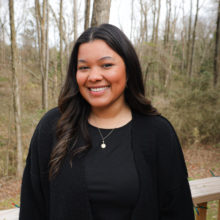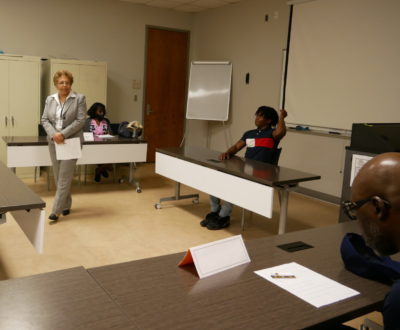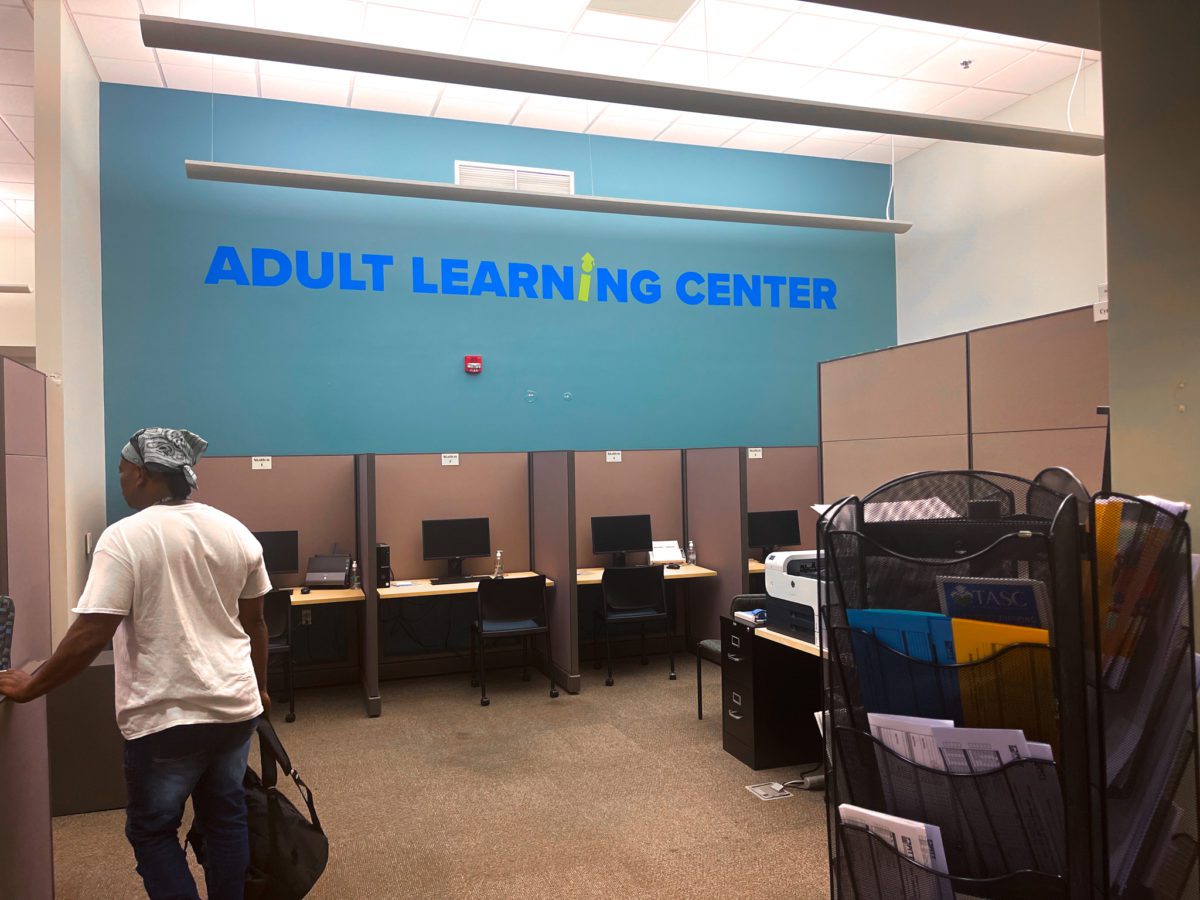
|
|
A recent economic impact report shows Pitt Community College‘s economic impact in its service area. Between curriculum and continuing education programs, the college served over 19,000 students in the 2019-2020 school year. In Pitt County alone, one out of every 25 jobs is supported by PCC and its students. PCC has an annual impact of more than $228 million in its area.
But the college says its impact goes beyond what the numbers show.
In numerous ways, Pitt Community College demonstrates the value of prioritizing flexibility and providing several options so students succeed.
Through its technical academy, PCC partners with Pitt County Schools to offer a modified schedule for high school students interested in programs like biotechnology, industrial systems technology, and more. In 2021, Pitt Community College opened the state’s first adult learning center to provide specialized support for the county’s large adult learner population.
With both, PCC is showing what it means to put students first.
Serving the whole student
Across campus, the dedication to serving students and meeting community needs is evident. Dr. Thomas Gould, executive vice president at PCC, said the pandemic revealed more about student barriers that PCC did not initially know about. Learning how many students struggled with food insecurity, child care, lack of internet access, and transportation changed the college’s view of how it serves students.
“We really did learn that in order for our students to be successful in the classroom, we’ve got to make sure they’re successful outside of the classroom,” Gould said.
PCC has managed to support students by implementing a technical academy for high school students interested in taking Career and College Promise (CCP) classes. PCC waives the fees typically associated with CCP courses. The technical academy provides transportation for students, who spend their mornings taking courses at PCC, then provides transportation back to their high schools located throughout the county.
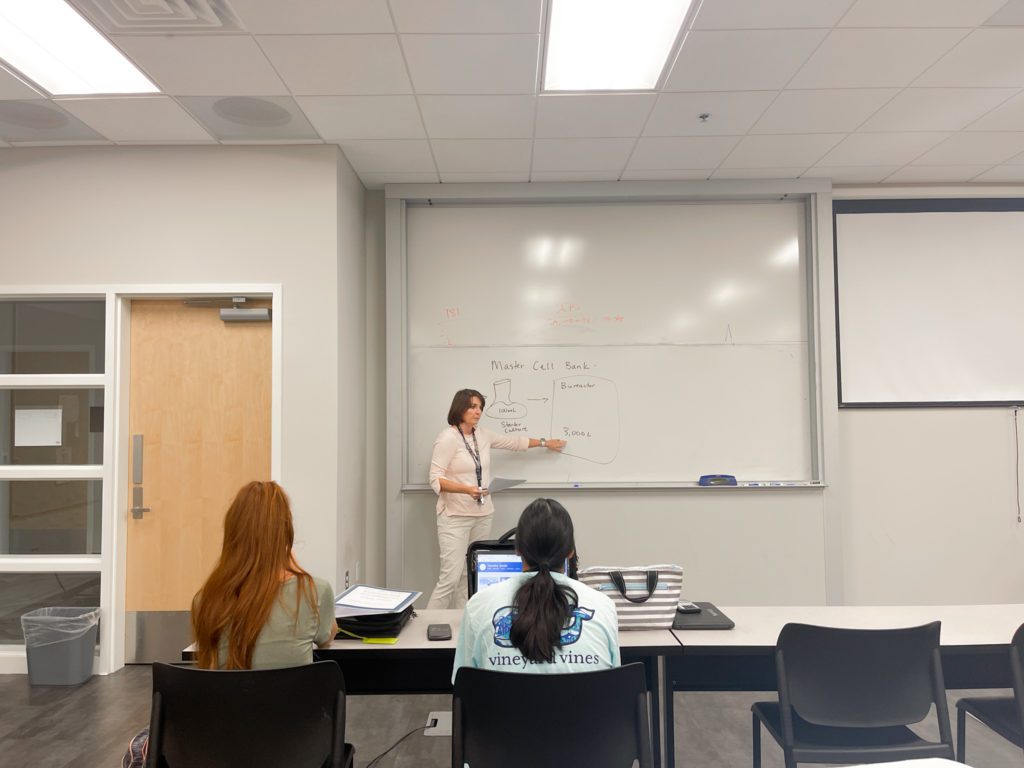
Dr. Ethan Lenker is the superintendent of Pitt County Schools. He said the technical academy makes CCP courses more accessible for students in his district.
“That gives them a reason to come to school, gives them a chance to really see what the future might look like,” Lenker said. “I’m not naive enough to think that 8:30 -3:30 is ideal for 100 percent of our kids, that ship has sailed, right? We need to do something different and that’s what we’re trying to do.”
At the start of the pandemic, PCC used federal funds to purchase WebEx video conferencing software. Now, as the college transitions into more and more face-to-face classes, WebEx software will be used for students who can’t make it to class, allowing them to stay engaged.
Gould said PCC realized how often students’ work schedules, child care, and transportation plans could change, so allowing students to continue signing into class online without being penalized makes PCC programs more accessible.
Engaging with adult learners
After viewing a report it received from the Belk Center for Community College Leadership and Research, PCC learned that there were nearly 40,000 students in Pitt County with some education, but no degree. So in November 2021, PCC opened the first adult learning center in the state to help engage adult learners in the county.
There, PCC staff provide support specifically tailored for adult learners. This includes outreach, counseling, financial aid assistance, and a hotline — opening a line of communication between the center’s staff and adult learners at PCC.
Brian Jones, the assistant vice president of enrollment services, said the adult learning center has acted as a “front door entry” for adult learners — giving them a starting place on campus. Because adult learners are a unique population, Jones says providing unique services is essential.
“Adult learners have their own needs that a traditional learner may not have. They obviously have their life experiences that they bring with them to the table,” Jones said.
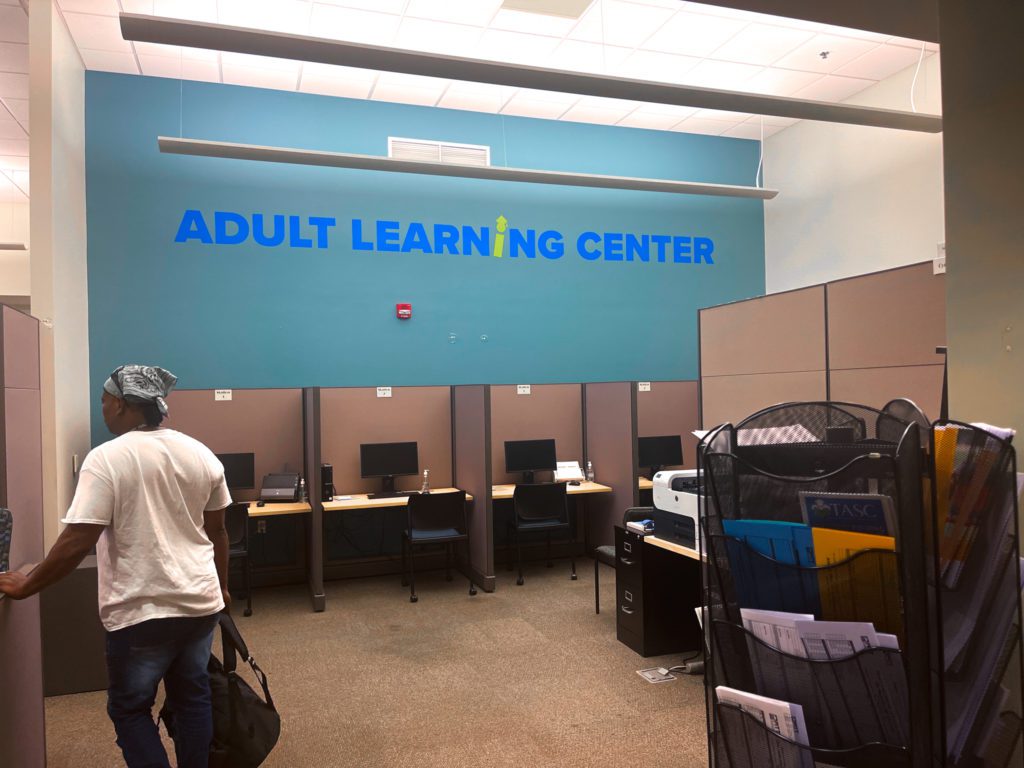
Jones and his team created an “intake form” that they use when adult learners apply to PCC. This form includes questions about things like child care and transportation so that PCC can be aware of student needs and barriers before they ever take a single class. By doing this, PCC is able to connect students with resources early on and avoid a mid-semester “scramble.”
To better serve adult learners, the center has extended hours, including weekend hours, to accommodate non-traditional learners who are unable to visit the college during typical Monday through Friday hours.
“We make sure that students know this is the best place to get their education,” Ruth Hardy, a member of the support team for the adult learning center said. “We don’t want them to get away.”
A place to “build your foundation”
Robynique Willis-Brown graduated from Pitt Community College in 2015. She says her time at the school shaped her undergraduate experience at East Carolina University and guided her to her first post-graduate job.
“I do believe that Pitt really got you settled and really started teaching you what you needed to be prepared for and what the next steps might look like,” Willis-Brown said.
Willis-Brown was a foster child in the state of Massachusetts. She said when she moved to Pitt County, it was an adjustment, but Pitt Community College provided her with the opportunity to get acclimated to higher education before moving on to a four-year university.
Willis-Brown was a member of the VISIONS Career Development and Scholarship Program at PCC, where she received a scholarship that made college an option for her.
Willis-Brown graduated from PCC in 2015 and transferred to East Carolina University. She graduated with a Bachelor of Social Work in 2018 and then completed a Master of Social Work, graduating in 2019. She says it was Pitt Community College that prepared her.
Now, Willis-Brown works at the ECU Health Cancer Care Center, where she provides one-on-one counseling for patients and their caregivers and facilitates support programs.
“It all began right here at Pitt,” Willis-Brown said.
A previous version of this post incorrectly stated Robinyque Willis-Brown worked at the East Carolina Brain Center. She works at the ECU Health Cancer Care Center
